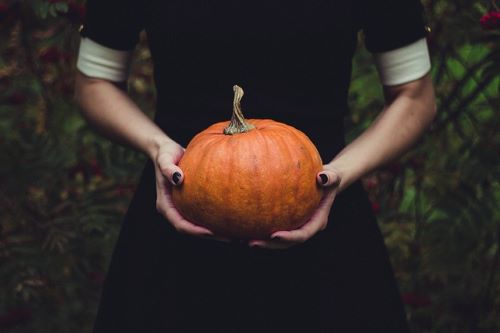As we approach Halloween, you’ve probably noticed a few vacant buildings in your neighborhood that are suddenly no longer vacant. Pop-up Halloween stores sweep into town, set up shop and disappear after the holiday has passed. Spirit Halloween is the best known example, but Halloween wholesalers crop up all over during this time of year.
In the midst of brick and mortar retail’s decline, Spirit has found a way to seize on vacant retail spaces. Their business model is based around scouting good retail locations throughout the year. They have a full retail team dedicated to finding appealing spaces for lease in proximity to established shopping locations. People are much more likely to swing through Spirit if they are already in the same strip mall shopping at Macy’s.
Spirit Halloween has over 1,300 stores in all 50 states. These stores only operate from late August to early November, according to their website. They get short term leases, set up shop and pack it up shortly after Halloween.
Spencer’s bought Spirit Halloween in 1999, and they have since helped them grow internationally into Canada. Spirit sells Halloween costumes all year long on their website.
The National Retail Federation is predicting that U.S. consumers will spend over $8 billion on Halloween celebrations this year. According to their survey retails, women are more likely to celebrate Halloween and men are planning on spending about $96 on costumes and accessories, about $20 more than women anticipate spending.
Their survey polled 7,419 consumers earlier this year. The survey also projects $2.6 billion in spending on candy across the country, and $2.7 billion on decorations. Lastly, 42% of shoppers said they would begin shopping for Halloween in the first two weeks of October.
Ideas for Your Story
The local labor market:
Spirit Halloween relies on seasonal labor. How do employees feel about working in this type of short-term situation? Does Spirit have reliability issues with employees who do not have a long future with the company?
Retail stores and the shift to E-commerce:
Halloween pop-ups occupy an interesting position in a complicated situation. Big names like Forever 21 and Sears have filed for bankruptcy this year after falling retail sales. Where does Spirit Halloween exist in this environment? Can other types of stores utilize the same strategy?
Talk to the local chamber of commerce:
Chambers of commerce want to support businesses in their community, but does this include chains like Spirit parachuting in? How do they feel about these short term leases? Is all business good for the town?
Halloween Shoppers:
How have consumer preferences changed, and stayed the same, around Halloween shopping? Why go to a wholesaler like Spirit when other stores like Party City or Walmart sell lots of Halloween items? What do customers like about shopping at Spirit?
The effect on other local businesses in the area:
How do neighboring businesses feel when Spirit sets up shop? Does it drive more business to them? Do they like that the space gets filled, even if it’s just temporary?
Additional Reading:
Vox, Halloween pop-up stores, explained
Digiday, Halloween stores are opening more pop-ups as temporary retail goes mainstream
The National Retail Federation: NRF’s Annual 2019 Halloween Spending Survey, conducted by Prosper Insights & Analytics











